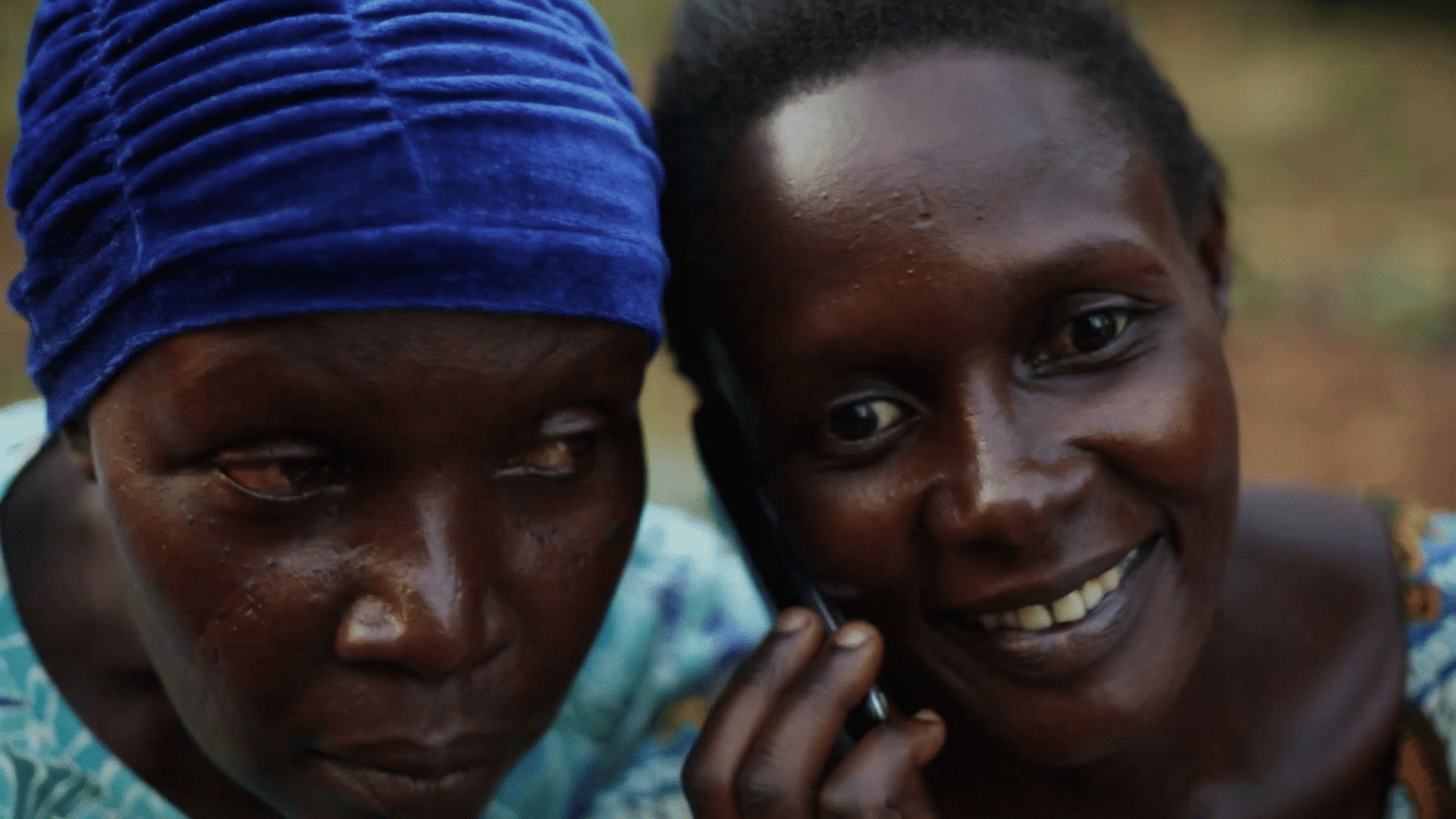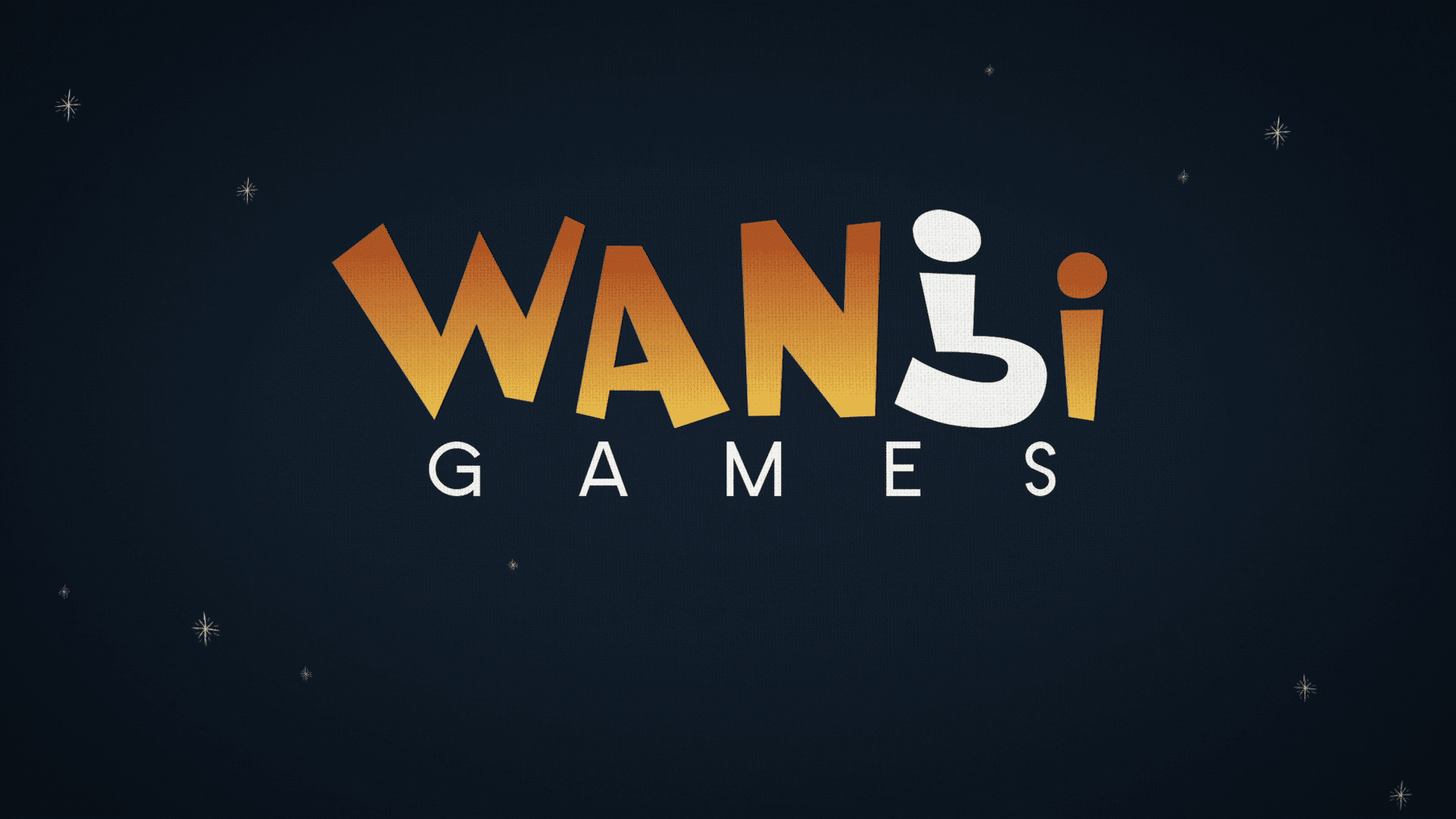Uganda (Kampala)
Love choose-your-own-adventure books? They’re the inspiration for cellphone games that make financial, sexual, and health education accessible to remote communities.
You’ve just made $81 after a month of casual labour in Uganda. There’s no guarantee that you’ll find work next month so you must be careful with your budgeting. Press 1 to keep track of finances in your head — nobody needs to know how you spend your money. Press 2 to buy pen and paper and write down your expenses.
In 20 countries across the Global South, the mobile Wanji Games are posing similar dilemmas to bring interactive audio education to remote communities. No smartphone or costly internet connection needed.
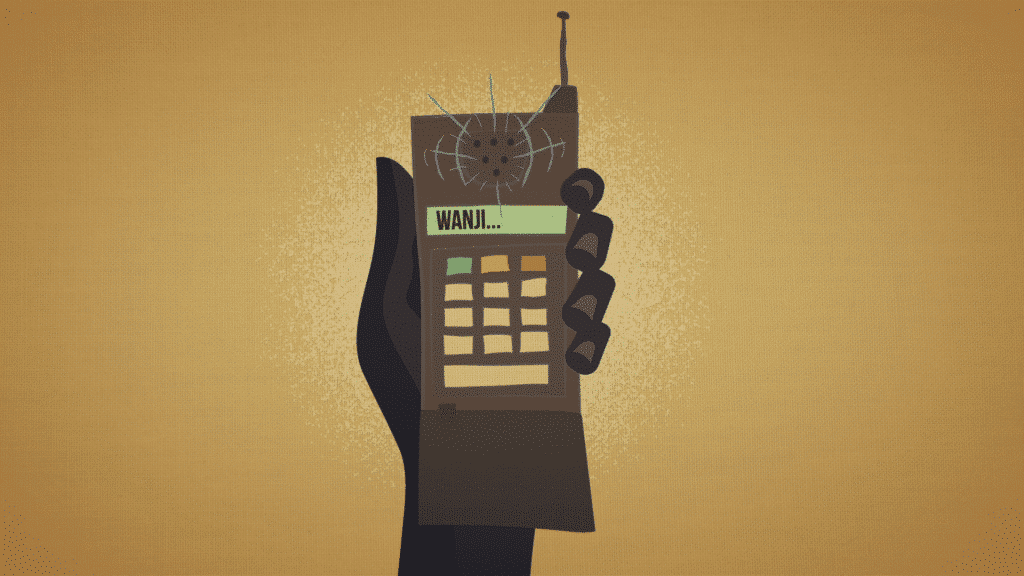
Call a toll-free hotline to start playing. Image: Wanji Games
Dr Paul Falzone, Executive Director of award-winning NGO Peripheral Vision International (PVI), was browsing through a second-hand bookshop in New York when he saw an ’80s choose-your-own-adventure book. Suddenly, he had found the solution to bring crucial information to marginalised people who can’t access the internet or afford/use smartphones.
“The future we are trying to create bridges the deepening digital divide — providing marginalised people with life-changing media messaging using the tools they have in a format that they understand. In the case of Wanji, the tool is the basic phone and the format is spoken messaging in local languages.” — Paul Falzone
While doing work in Karamoja, north-east Uganda, Paul had already noticed that while everyone seemed to have a basic flip phone, televisions and radios were rare. Plus, traditional broadcasting requires the public to tune in at specific times. But previously launched SMS-based mobile interventions proved ineffective, because they assumed general literacy and often, literacy in languages that may not be the native tongue of the audiences.
Most importantly, they were missing a crucial point. “One of the greatest errors that people make when trying to create communication that aims to change the world”, explains Paul, “is to forget that for it to really work it must engage the audience. It must tell a story, not just list facts.” And when playing video games or reading choose-your-own-adventure books, users can easily feel involved, co-creating the story as it unfolds. That’s the magic and future-fixing potential of play for you.
“It’s not just that those whose job it is to educate need to do more to entertain. It’s that those whose job it is to entertain have a moral obligation to use their talents to educate.”
Word of mouth, radio campaigns, and text messages are used to inform communities about the Wanji Games. Those interested can dial in and start playing toll-free.
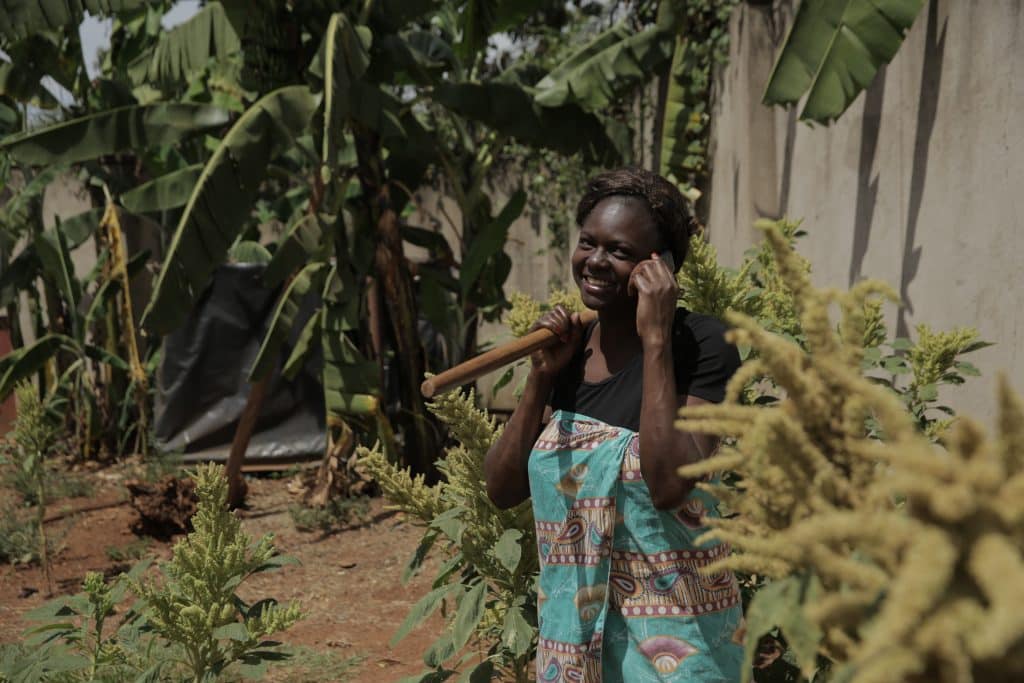
You can play anywhere. Image: Wanji Games
Within weeks from launch, a 2018 campaign developed in collaboration with the Ministry of Agriculture in Madagascar to educate rural farmers about climate change and microinsurance to protect them against it recorded over 100,000 Wanji players.
And in April 2020, a Wanji game was launched to help the fight against the coronavirus pandemic. The first version of the game managed to reach 2.7 million people with 15.5 million key public health messages related to COVID-19 across 11 countries.
While in the original COVID-19 edition, players were presented with scenarios focused on handwashing and social distancing (if your eye itched while doing the shopping at the market, would you rub it?), the focus gradually shifted towards vaccines and masks as the world learned more about the virus. And over time, PVI created several Wanji games to deal with the secondary effects of the pandemic, such as intimate partner violence, home education, sex ed and family planning when getting to the clinic is impossible, and more.
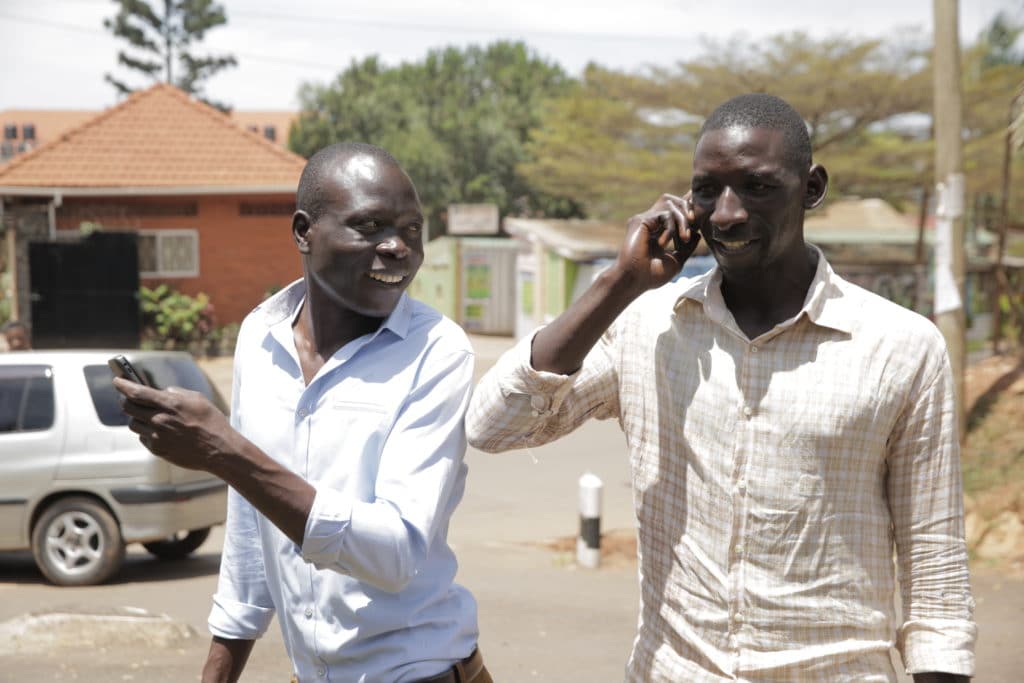
Image: Wanji Games
Wanji Games is a winner of the 2017 MIT Solve Global Challenge initiative, is now financially self-sufficient, and keeps turning timely social issues into player-centred real-life stories in Africa, Asia, and the Caribbean. Yet PVI is always looking for new ways to make education fun. Their latest feat? Catalysing social change with N*GEN, the first Pan-African science TV show for kids that features female scientists from Africa in the field discussing issues like climate change, vaccines and conservation of nature.
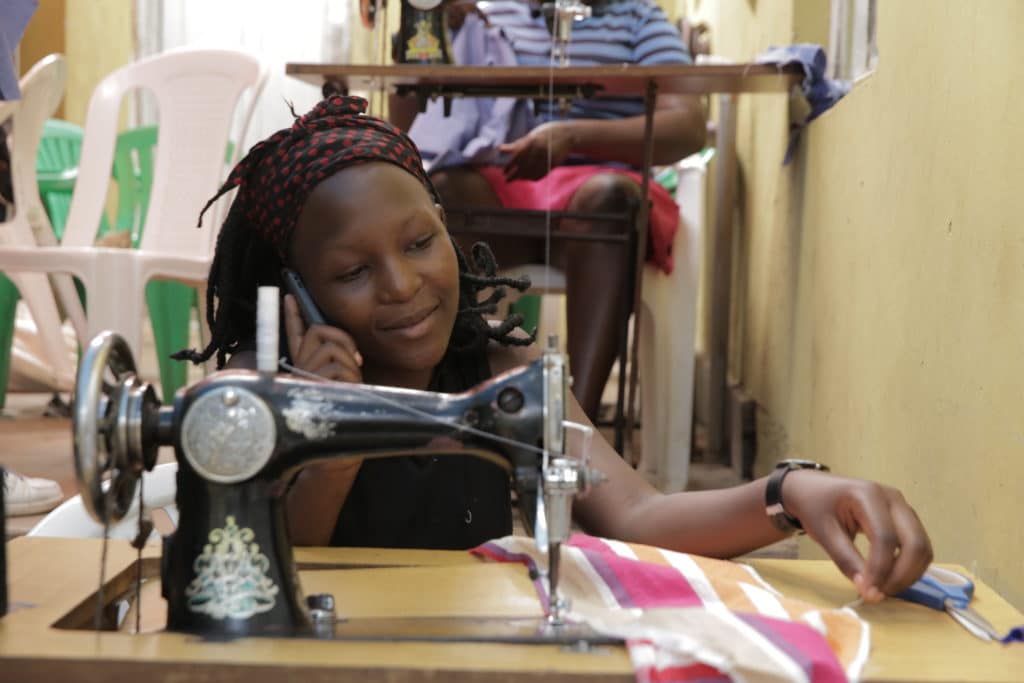
Image: Wanji Games
AtlasAction: Help PVI grow by asking a corporate or philanthropic partner to sponsor their programmes. Love games? Learn how playful projects are changing the world.
Project leader
Josie Gallo
Support the Atlas
We want the Atlas of the Future media platform and our event to be available to everybody, everywhere for free – always. Fancy helping us spread stories of hope and optimism to create a better tomorrow? For those able, we'd be grateful for any donation.
- Please support the Atlas here
- Thank you!
